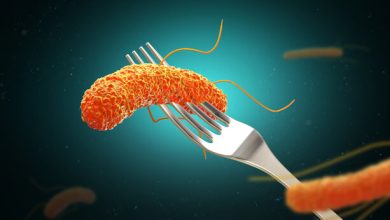6 common symptoms of omicron you should be on the lookout for

Wuhan In a short period, India is witnessing a record number of covid positive cases due to Omicron, the latest variant of the virus that caused Covid-19 worldwide. Discovered first in November 2021 in South Africa, the variant has reached and infected the population of 106 countries so far, as per the data presented by World Health Organization, who are also concerned that being a highly mutated variant, this may surpass the immunity boosted by the vaccination.
With the increase in RT-PCR tests in Gurgaon, Mumbai, Delhi, and other metropolises along with observing each patient thoroughly, varying symptoms are reported. Although, they are noticed to be milder, yet, there is a need to be more cautious than ever as the virus has severely high transmissibility.
Let us look at 6 common symptoms of Omicron found across the countries with infections
A Scratchy Throat
One of the most common symptoms of Omicron that is found in almost all countries reeling under this highly mutant variant is a scratchy throat. Another floating theory that gives light to these specific symptoms is that the traveling of the virus from throat to lungs is slower than the previous variants like Delta. The viral load stays much of the time in the throat, which may result in a scratchy throat as the most common symptom.
Smell and Taste
Loss of smell and taste was one of the most common symptoms when SARS-CoV-2 first attacked the human race, starting from Wuhan, China, and slowly engulfing the world. The cases infected with Delta and Omicron variants have not shown a significant number of patients experiencing loss of smell and taste. A patient’s ability to smell and taste remains intact.
Respiratory Concerns
Almost 89% of patients infected with the Delta variant that rocked India in early 2021 were reported to have respiratory issues like congestion and breathlessness. However, with the emergence of Omicron, no such numbers of cases are reported to experience any respiratory complications. There has been no major drop in oxygen levels reported.
Flu-like Symptoms
Cold, cough, body aches, and fatigue remains the top symptoms recorded for Omicron patients so far. With body aches ranging from severe to highly severe, a rise in the body temperature initially, dry cough, runny nose, and constant fatigue; the SARS-CoV-2 virus continues to grapple the population with all flu-like symptoms.
G.I Symptoms
G.I symptoms like nausea, vomiting, diarrhea, loss of appetite were not seen more prevalent in an earlier variant of coronaviruses. However, there has been a notable size of Omicron patients reporting moderate to severe G.I symptoms. If you are suffering from any of these symptoms, especially without fever, it may indicate Omicron infection and the best advice would be to take an RT-PCR test in Gurgaon, Jaipur, Delhi, or any city of residence to rule out any concern.
Heart Complications
Cardiovascular complications remain majorly at bay since the start of the COVID-19 pandemic in early 2020. However, it was observed that people suffering from cardiovascular disease (CVD) are twice more likely to come in contact with the virus, owing to a weak immune system. Healthcare worldwide also reported long-term heart ailments from the covid-recovered population. With the emergence of the Omicron variant in most of the countries, so far not much has been reported in terms of heart health, as it was observed in Delta, Delta plus, and previous SARS-CoV-2 variants. Yet, it is imperative to maintain a healthy heart, and people with CVD should stay extra cautious.
As gathered from reliable sources, most of the symptoms instigated by the Omicron variant of the SARS-CoV-2 virus are in line with the symptoms of patients suffering from the Delta variant. However, it should be noted that Omicron is still emerging and infecting people rapidly. Symptoms can vary from person to person, depending upon the country of residence, immunity, vaccination dose status.
Symptoms provide a clue and no security of any infection. It is always advisable to contact your health carer and undergo an RT-PCR test in Gurgaon, Delhi, or nearby.
It is also worth noting that the incubation period of Omicron is shorter than any previous variant. It may take 3-5 days or a week for an infected person to develop the symptoms. It is also a major reason for the rise in covid-19 positive cases currently as the testing ramps up. However, factors like age, present comorbidities, vaccine status, stress, etc. also impact the incubation period of any individual.
Below are the ways advised by WHO to protect yourself and others in the pandemic:
- Maintain social and physical distancing
- Wear a mask
- Wash hands regularly and avoids putting them on the face
- Keep a good hygiene
- Ventilate living space
- Get vaccinated
- Self-isolate if you develop symptoms
- Get yourself tested, whenever doubtful
With extensive ongoing research across the globe, the medical fraternity aims to study and control the virus better. Following closely with WHO guidelines, diagnostic centers are coming up with technically advanced RT-PCR test kits and offering convenient services like covid home sample collection, etc. PeaceHealth is one such name that is providing quality and affordable healthcare services in India, including the RT-PCR test at remote, personal, and large scales. Know more about SpiceHealth’s RT-PCR test in Gurgaon and book a test online.



